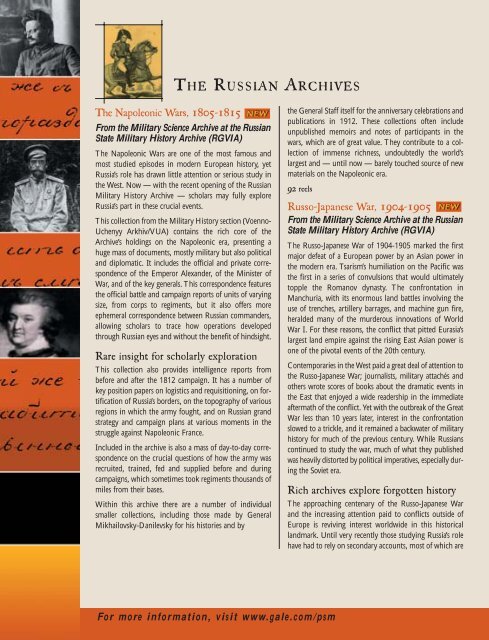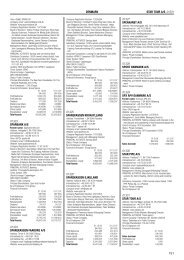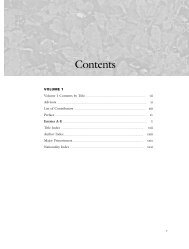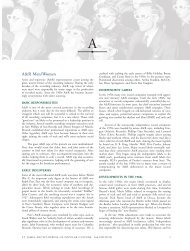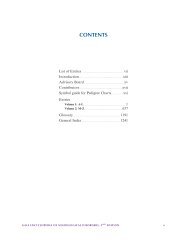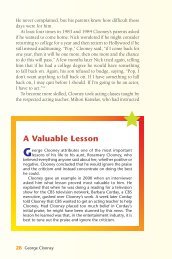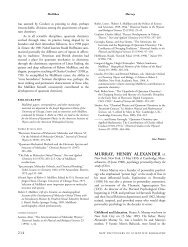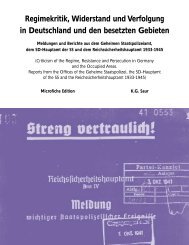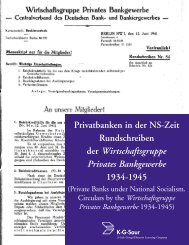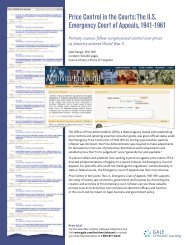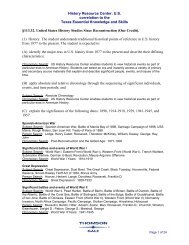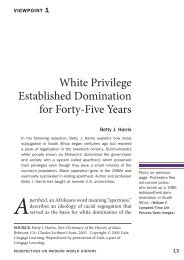THE RUSSIAN ARCHIVES - Gale
THE RUSSIAN ARCHIVES - Gale
THE RUSSIAN ARCHIVES - Gale
You also want an ePaper? Increase the reach of your titles
YUMPU automatically turns print PDFs into web optimized ePapers that Google loves.
The Napoleonic Wars, 1805-1815<br />
<strong>THE</strong> <strong>RUSSIAN</strong> <strong>ARCHIVES</strong><br />
From the Military Science Archive at the Russian<br />
State Military History Archive (RGVIA)<br />
The Napoleonic Wars are one of the most famous and<br />
most studied episodes in modern European history, yet<br />
Russia’s role has drawn little attention or serious study in<br />
the West. Now — with the recent opening of the Russian<br />
Military History Archive — scholars may fully explore<br />
Russia’s part in these crucial events.<br />
This collection from the Military History section (Voenno-<br />
Uchenyy Arkhiv/VUA) contains the rich core of the<br />
Archive’s holdings on the Napoleonic era, presenting a<br />
huge mass of documents, mostly military but also political<br />
and diplomatic. It includes the official and private correspondence<br />
of the Emperor Alexander, of the Minister of<br />
War, and of the key generals. This correspondence features<br />
the official battle and campaign reports of units of varying<br />
size, from corps to regiments, but it also offers more<br />
ephemeral correspondence between Russian commanders,<br />
allowing scholars to trace how operations developed<br />
through Russian eyes and without the benefit of hindsight.<br />
Rare insight for scholarly exploration<br />
This collection also provides intelligence reports from<br />
before and after the 1812 campaign. It has a number of<br />
key position papers on logistics and requisitioning, on fortification<br />
of Russia’s borders, on the topography of various<br />
regions in which the army fought, and on Russian grand<br />
strategy and campaign plans at various moments in the<br />
struggle against Napoleonic France.<br />
Included in the archive is also a mass of day-to-day correspondence<br />
on the crucial questions of how the army was<br />
recruited, trained, fed and supplied before and during<br />
campaigns, which sometimes took regiments thousands of<br />
miles from their bases.<br />
Within this archive there are a number of individual<br />
smaller collections, including those made by General<br />
Mikhailovsky-Danilevsky for his histories and by<br />
For more information, visit www.gale.com/psm<br />
the General Staff itself for the anniversary celebrations and<br />
publications in 1912. These collections often include<br />
unpublished memoirs and notes of participants in the<br />
wars, which are of great value. They contribute to a collection<br />
of immense richness, undoubtedly the world’s<br />
largest and — until now — barely touched source of new<br />
materials on the Napoleonic era.<br />
92 reels<br />
Russo-Japanese War, 1904-1905<br />
From the Military Science Archive at the Russian<br />
State Military History Archive (RGVIA)<br />
The Russo-Japanese War of 1904-1905 marked the first<br />
major defeat of a European power by an Asian power in<br />
the modern era. Tsarism’s humiliation on the Pacific was<br />
the first in a series of convulsions that would ultimately<br />
topple the Romanov dynasty. The confrontation in<br />
Manchuria, with its enormous land battles involving the<br />
use of trenches, artillery barrages, and machine gun fire,<br />
heralded many of the murderous innovations of World<br />
War I. For these reasons, the conflict that pitted Eurasia’s<br />
largest land empire against the rising East Asian power is<br />
one of the pivotal events of the 20th century.<br />
Contemporaries in the West paid a great deal of attention to<br />
the Russo-Japanese War; journalists, military attachés and<br />
others wrote scores of books about the dramatic events in<br />
the East that enjoyed a wide readership in the immediate<br />
aftermath of the conflict. Yet with the outbreak of the Great<br />
War less than 10 years later, interest in the confrontation<br />
slowed to a trickle, and it remained a backwater of military<br />
history for much of the previous century. While Russians<br />
continued to study the war, much of what they published<br />
was heavily distorted by political imperatives, especially during<br />
the Soviet era.<br />
Rich archives explore forgotten history<br />
The approaching centenary of the Russo-Japanese War<br />
and the increasing attention paid to conflicts outside of<br />
Europe is reviving interest worldwide in this historical<br />
landmark. Until very recently those studying Russia’s role<br />
have had to rely on secondary accounts, most of which are


